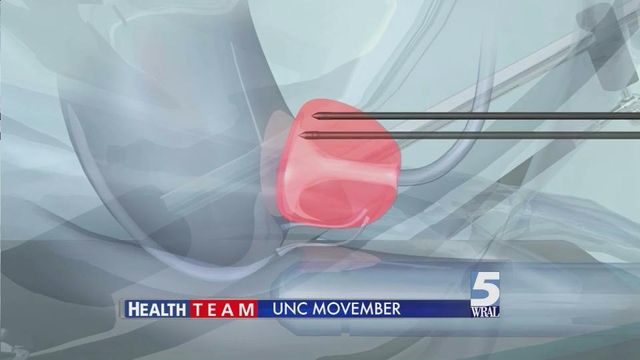Early detection is key to fighting prostate cancer
For men's health advocates, the month of November starts with an "M" for "men" and for "move." The goal is to get men more physically active and raise awareness for the most common cancer killer among men, prostate cancer.
Posted — UpdatedEarly detection was key for Albert Brunson, 72. Seven years ago, he got the results of his prostate specific antigen, or PSA blood test, which raised concerns. That led to needle biopsies. Of the 12 needles, three were positive.
Brunson had surgery to remove his prostate and has been cancer free for six years. He urges other men to get screened.
“The average man does not like to get that examination,” he said.
UNC urologist Dr. Matthew Nielsen says early detection is important for men.
“Since PSA testing started about 25 years ago, the prostate cancer mortality in the U.S. has gone down over 40 percent,” he said.
Once diagnosed with prostate cancer, the best treatment for many patients may be a strategy called watchful waiting, because many cancers are slow growing and may never extend beyond the prostate. However, men considered at higher risk may need a more aggressive approach.
“Probably the most significant higher-risk group is African-American men. African Americans have the highest incidence and mortality rates in the entire world,” Nielsen said.
Among higher risk groups, the American Cancer Society recommends starting screening at 40 years old. The average man should begin around 50 to 55.
• Credits
Copyright 2024 by Capitol Broadcasting Company. All rights reserved. This material may not be published, broadcast, rewritten or redistributed.





